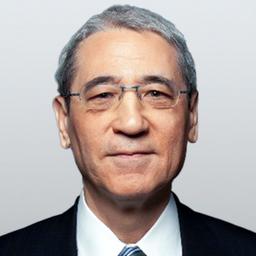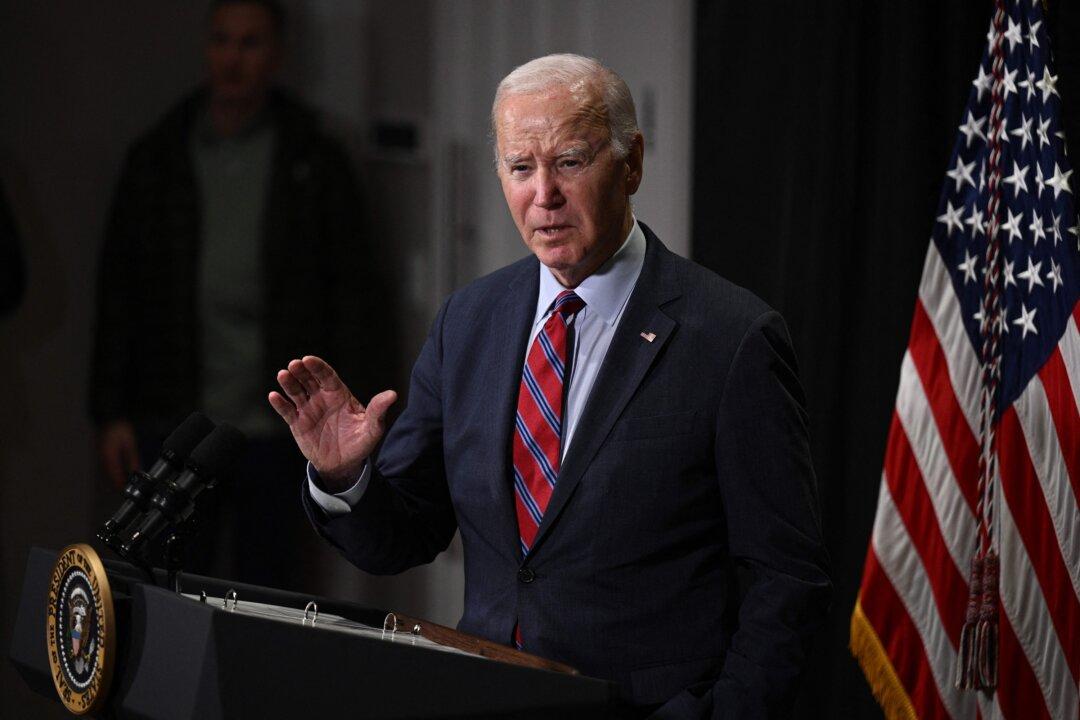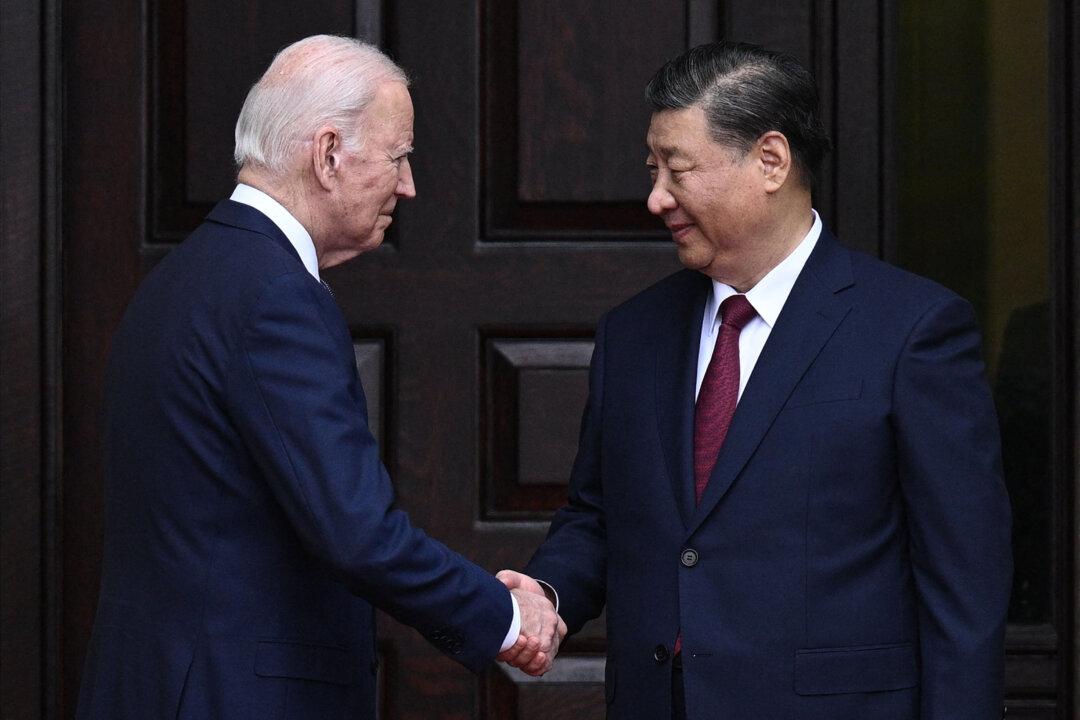Commentary
The Chinese state is not only a dangerous international actor, it is also a common criminal. Perhaps we should say it is an uncommon or state criminal, the most powerful and insidious kind.
What is the world’s largest transnational criminal organization? At 96.7 million members, it is the Chinese Communist Party (CCP).
The Obama administration’s “
Strategy to Combat Transnational Organized Crime,” issued in 2011, defines “transnational organized crime” as “self-perpetuating associations” operating transnationally “for the purpose of obtaining power, influence, monetary and/or commercial gains, wholly or in part by illegal means.” These organizations protect themselves “through a pattern of corruption and/or violence.”
That describes the Communist Party to a T.
The only way the Party falls outside the Obama definition is that it does not have “economic gain” as its “primary goal.”
Beijing’s primary goal is
rule—not domination—of Earth and the near parts of the solar system. Xi Jinping is working to impose the Chinese imperial-era system in which emperors believed not only that they had the Mandate of Heaven to rule
tianxia or “all under Heaven,” but also that they were compelled by Heaven to do so. Moreover, China’s officials beginning in 2017 publicly talked about the moon and Mars as
sovereign Chinese territory, part of the People’s Republic.
This expansive Chinese view has many implications, but one of them is that China’s regime does not believe it is bound by the laws of the international community. China’s regime, with this mentality, thinks that whatever it does by definition is within its right and therefore not criminal.
China, however, is one big crime scene. All transnational crimes committed in the Chinese state—even those not committed by state agents—are the CCP’s criminal acts as well.
Why?
The People’s Republic of China maintains the world’s most sophisticated surveillance state. With the possible exception of the Democratic People’s Republic of Korea (North Korea), no state knows more about the activities of its people.
There are in China, for instance, more than 700 million
surveillance cameras in its SkyNet system, about one camera for every two residents. Those devices are being connected to one centrally controlled system as the regime stitches together a nationwide social credit system to monitor every person in the People’s Republic.
In addition, the regime uses the 1.69 billion cell phones—0.97 billion of these are smartphones—for surveillance purposes. Taxis and other vehicles also have government-installed cameras. The CCP has thought of everything. As a result, China is fast becoming totalitarian and a total surveillance state.
The Communist Party cannot run such a state and claim it does not know what is going on. So if large, organized criminal gangs continue operating in China, it is obvious these organizations have both the knowledge and approval of the party-state.
This means the CCP is responsible for the tens of thousands of Americans annually killed by fentanyl. Fentanyl is one of dozens of opioids Chinese gangs design and make in laboratories in China. The gangs then sell the precursor chemicals primarily to two Mexican cartels, which mix the Chinese precursors and then smuggle the fentanyl into the United States through a wide-open southern border. The result, Vanda Felbab-Brown of the Brookings Institution
wrote, is “the deadliest drug epidemic in U.S. history.”
As Ray Donovan, recently retired chief of operations for the Drug Enforcement Administration (DEA),
told Fox News Digital, “China is the lead nation for the production of precursor chemicals used to make fentanyl and the Chinese chemical industry is the most unregulated industry in all of China.”
Moreover, the Chinese surveillance state does more than just know and approve of the activities of the drug gangs; it also gives them diplomatic support. In early April, for instance, the Chinese foreign ministry publicly
stated this: “There is no so-called illicit fentanyl trafficking problem between China and Mexico.”
In addition, the Chinese central government and Communist Party media outlets support the Chinese gangs. Even China’s private companies participate in this propaganda barrage. TikTok, for example, which Beijing effectively controls,
glamorizes drug use. Yes, the wildly popular app has community guidelines prohibiting videos promoting drug use, but you can find clips with millions of views teaching kids how to take illegal drugs.
Moreover, the Chinese gangs launder profits through the Chinese state banking system. Chinese “money brokers,” working for Latin American drug lords, have quickly displaced rivals with, as a source
told Reuters, “the most sophisticated form of money laundering that’s ever existed.”
The Chinese gangs use burner phones and Chinese banking apps to move vast sums quickly, quietly, and securely through the Chinese state banking system. The Chinese Communist Party tightly controls all Chinese banks, and no one could transfer sums through their networks without the cooperation of the regime.
Beijing, not surprisingly, has not cooperated with American efforts to stop the fentanyl trafficking.
Why does the Communist Party resort to criminal activity? The regime apparently sees fentanyl as a way to increase its Comprehensive National Power, or CNP. CNP is an empirical framework, developed by the Soviets, to rank countries. China wants the No. 1 ranking, and one way of getting there is by decreasing America’s ranking. Transnational crime, especially peddling fentanyl, comes in handy for that.
The Communist Party’s ambitions, however, go beyond CNP rankings. ProPublica has tied Chinese money launderers, who moved Latin American drug cash, to Beijing’s attempt to
influence American politics. Li Xizhi, once China’s leading money launderer in the Western hemisphere, and associate Liu Tao started “a high-rolling quest for political influence” that resulted in at least two meetings with a recent sitting American president, Donald Trump. This appears to have been a Chinese covert operation to penetrate American politics, as Li’s political forays had almost nothing to do with his money-laundering business.
Furthermore, it is increasingly apparent that Chinese authorities have decided to foster the drug trade in the Americas in order to destabilize the region and spread corruption as well as addiction and death. China’s gangs do not just operate on the sidelines of society in Latin America and the Caribbean, they also corrupt the ruling elites—in other words, whole countries, as cited by Joseph Humire below.
In the Western hemisphere, China distorts business and politics. The results of Beijing’s activities are more corruption, more conflicts, and more destabilization.
“At its core, the People’s Republic of China is focused on gaining geopolitical leverage over countries in Central and South America to be used in an eventual conflict with the United States,” Joseph Humire of the Center for a Secure Free Society told Gatestone. “This includes empowering autocratic leaders with ties to illicit actors in each country to change the incentives from a free enterprise system to an illicit enterprise system that relies on drug trafficking, human smuggling, contraband, illegal fishing, and other illicit activities.”
These are just a few of China’s crimes as
detailed in Frank Gaffney’s new book, “The Indictment: Prosecuting the Chinese Communist Party & Friends for Crimes Against America, China, and the World.” Unfortunately, American law enforcement prosecutes individuals when it should be prosecuting the Chinese Communist Party instead. Similarly, the U.S. Treasury on May 30
announced sanctions on 13 entities in China for the production of illicit synthetic drugs but failed to name the real culprit, the Party.
Criminality and lawlessness are inherent in the nature of China’s communist state, which idealizes struggle and domination, and the continued criminality of its ruling group throws into question the world’s basic assumptions about the Chinese system.
China’s Communist Party is now threatening to engulf the world with its criminality. What is at stake, therefore, are the principles that hold modern society together.
Views expressed in this article are opinions of the author and do not necessarily reflect the views of The Epoch Times.






Friends Read Free